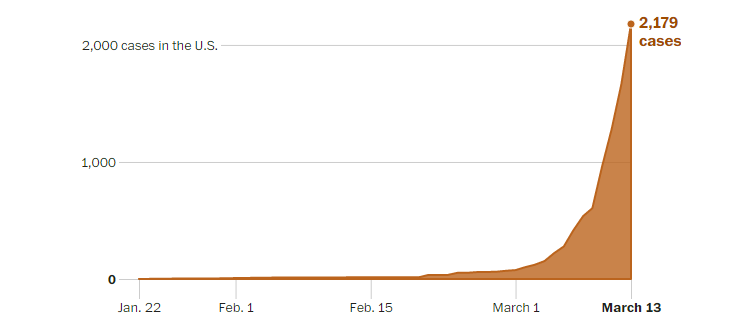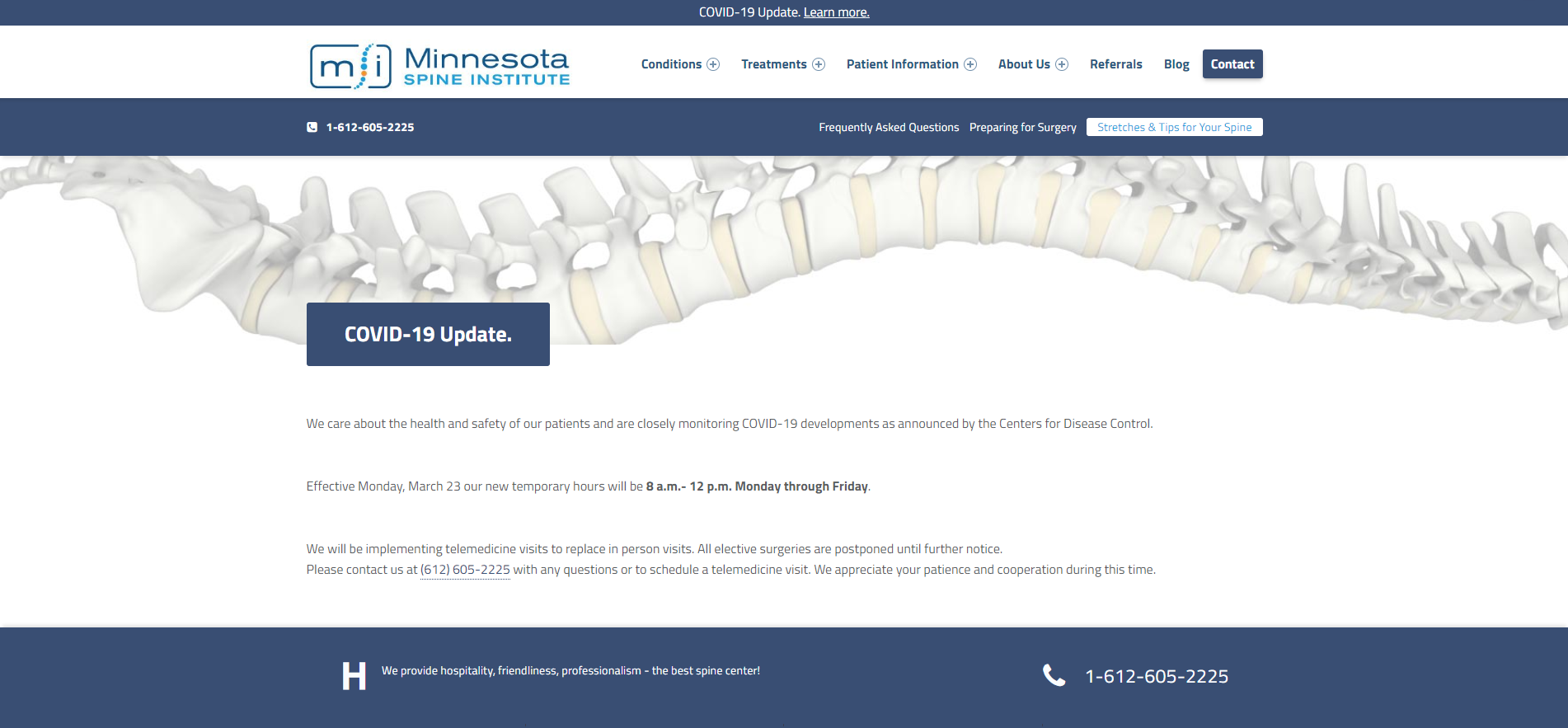
Subscribe to our newsletter!
We don't spam. You will only receive relevant and important tips for you and your business.
Unsubscribe anytime.
Every day, thousands of new COVID-19 cases are reported. As the coronavirus pandemic continues to spread, life in the United States has changed in drastic ways. Schools have closed for the year, businesses have shifted to working-from-home models, stores and restaurants have been forced to shutter, and sporting events and concerts have all been canceled.
Though no one really knows how many people will be infected, the coronavirus pandemic has resulted in a global stock market crash, causing widespread uncertainty and fear among businesses and marketers alike.


However, this won’t be the case for America’s small to midsize companies. The truth of the matter is that businesses are going to struggle for a while. Organic traffic has already dropped in many industries, as observed by Neil Patel.
While we’re all presumably working from home in this time of uncertainty, you may be wondering what you can do to prepare for the effects of COVID-19.
Having great customer service and e-commerce experience is imperative during times like this. Post about business changes, such as new hours, temporary closures, or what your business is doing to contribute during this time.
Additionally, since consumers are forced to continue much of their daily lives online, brands may experience new traffic. This presents an opportunity to compete for new users that aren’t frequent online shoppers.

Many businesses will think they need to scale back on spending because experts are saying that we are going to go into a recession. However, now is the time to actually ramp up your digital marketing. As digital marketers are aware, consumers are spending more time online right now and brand messaging is more important than ever.
As a result of the stock market crash, you may find that you have less competition, making it easier and less expensive to get results.
When you see your competitors closing down or slowing down on their marketing, the goal is to double down. You may not see the biggest return right away, but in the long term, you will.
Historically, businesses that have chosen a more progressive strategy of refocusing spending during a recession have outperformed businesses that made sweeping cuts, according to CXL.com. The study found that “firms that cut costs faster and deeper than rivals don’t necessarily flourish. They have the lowest profitability (21 percent) of pulling ahead of the competition when times get better.”
It will be even more vital to attract users stuck at home searching for products and services that they can still access when physical stores are closed.
The coronavirus outbreak should fade after a few months just as it has in China. That’s when normalcy will return and consumers’ spending habits will stabilize. SEO is a long-term strategy. What you do today will affect your organic search traffic two months from now and well into the future.
If you don’t continue to optimize your website and content daily, you’ll lose valuable ground in the search results, which will have a detrimental impact on your future revenue when the coronavirus has passed.
If you don’t have a method for conducting sales online, you need one. eCommerce will become almost imperative to running your business during this time.
People are turning to eCommerce for almost everything right now; grocery delivery, non-emergency medical visits, and even library book rental.
Our agency recently made this change for a client that sells landscaping supplies. As a business that was used to in-person transactions, they were shocked at how comfortable people seemed to be ordering their products online for delivery.
If your business transactions happen offline, think of ways to move some of your processes online, such as payments, scheduling, or even paperwork. For some, this may be tricky. But, this also presents a new opportunity for smaller brands that don’t already have an end-to-end eCommerce presence.
According to the World Economic Forum, internet usage is up 50% in some parts of the world as more aspects of daily life have moved online.
With more people at home in front of their screens, there’s an opportunity for businesses to use PPC advertising to connect with their customers and gain a competitive advantage. It also presents a chance to save money within your digital marketing budget. For many industries, on average, cost-per-clicks have decreased since the start of the outbreak.
More people at home also means that advertisers have lost the ability to reach customers with out-of-home touchpoints, such as billboards, location-based digital ads, or even in-store signage. Now, consumers must be met where they are: online. The digital ad space may become more competitive as more businesses are forced to move all of their marketing efforts online.
If more competitors allocate their budgets toward digital marketing, costs will rise as it will be more difficult to be at the top of the SERPs. Messaging will also become more competitive, and you will need to have strong ad content to distinguish your brand from competitors.
The opportunity will also arise to take advantage of more digital channels. Since people are spending so much time indoors and on their devices, this may be a good time to test out different channels. If you only run ads on Facebook, it may be smart to also start advertising on Google or Instagram. The more touchpoints you can create with the consumer, the more likely they’ll be to convert.
From an economic perspective, COVID-19 is already affecting the stock market. As the pandemic continues, it will also shift how consumers make purchases and engage with brands.
As a marketer, encourage consumers to think beyond this current situation. The outbreak of COVID-19 may be stressful for people. Fear and anxiety about a disease can be overwhelming and make it all too easy to spiral into overwhelming dread and panic.
Need help doubling-down on your marketing?